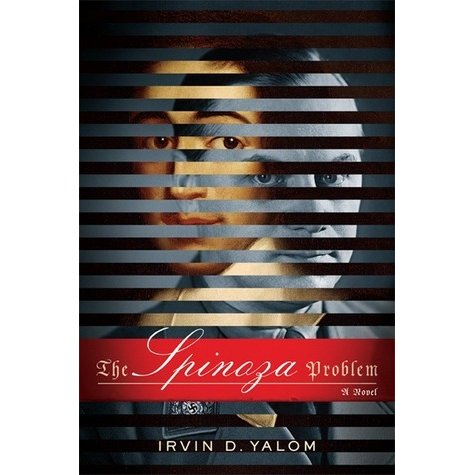The setting in 17th Century Amsterdam shows assiduous research and the differentiation of characters is good, as far as I can tell. On that qualification there will be more later.

Baruch Spinoza (1632-1677) repays effort. The first is with his name. He was born Benedito de Espinosa of Portuguese parents who had moved overnight to Amsterdam to avoid the convert-or-die (later) Iberian Inquisition. (Why does Ted Cruz come to mind?) The parenthetical reference ‘later’ applies because even Jews who willingly converted to Catholicism were subjected to subsequent persecution. In Holland he was sometimes styled Benedict. In all those permutations his first name means ‘Blessed.’

That qualification ‘as far I can tell’ means I stopped reading the book very early. I violate my rule of the positive in this case because I wanted to express my admiration for Spinoza the thinker. In addition his reputation as a man has come down the ages as a simple, unpretentious person, whose life was a model of rectitude, in contrast to the wastrel Jean-Jacques Rousseau, the gloom-and-doom merchant Thomas Hobbes, the obnoxious self-promoter John Locke, or the nutter John Stuart Mill.
Spinoza’s two tracts, the ‘Politics’ and the ‘Ethics’ are fine books, though arid. He much admired the method of geometric reasoning. Yet somehow he is not on the starting team in the Tour of Political Theory, so I only ever managed to slip the ‘Politics’ onto the syllabus once many years ago. Ditto his fellow Dutchman Hugo de Grotius.
‘The Spinoza Problem: a Novel’ is described as a thriller, and I should have stopped there. The lure of Spinoza was, however, too much; I bought it and started to read. The book has two characteristics that I dislike so much that I gave up on Spinoza.
First, everything is written in the present tense, including flashbacks. Ergo everything is happening at once.
Second, this simultaneous action occurs across the centuries because every other chapter alternates from Spinoza’s time in the 17th Century and the 20th Century. I like my krimis linear and literal.
The early scene with the schoolboy Alfred Rosenberg (look him up, if he is unknown) getting a lesson in life at his Estonia high school is certainly interesting, and sheds some light on anti-Semitism. I wish I had been able to persist,,,, (However, there are so many other, good books that do not set my teeth on edge.)
The use of the present tense is so common I suspect it is advised by agents and perhaps required by publishers, at least, of certain genres. That is, the thriller. Why do I react to it?
When everything is happening at once, it is left to the reader to sort out sequence, to distinguish past from present, and to supply the emphasis and the pace of events, and even to supply the viewpoint. It is like looking at two-dimensional flat world without topography and without time. See, it is lazy writing making the reader do the work that the writer should have done. Stephen King would have a zinger on this. Verb tenses are tools, and should be put to work. That is why they exist.
Not everyone is bothered by ahistorical simultaneity, it seems, because the book is published by a major New York publisher and has a good rating on Good Reads, for whatever that is worth. (I never cease to marvel at the illiterate accolades heaped on some dreadful specimens. Why did Donald Trump come to mind?)
 Irvin Yalom
Irvin Yalom
Confession: I was also irked by a lengthy introduction from the author about his many and deep interests. If that has to be present, put it at the back. In any event, I skipped it, something I was taught to do in college literature classes so as to make up my own mind. That I did.
Skip to content
